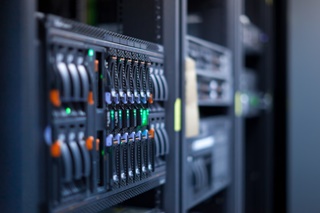Data Centers Aren’t Out of Reach for Small Businesses
Many small businesses struggle with the same dilemma: They know that technology can help them grow and work more efficiently, but they simply do not have the space or expertise required to actually install or operate the necessary equipment.
They know that working with a data center might actually solve one (or both) of those issues, but believe that data centers are best suited for large enterprises, those companies that are processing huge amounts of data and need multiple servers to do so. And of course, everyone is always concerned about cost, so it’s often assumed that data centers are out of reach budget-wise.
While the cloud offers some advantages to small businesses — the primary one being that it allows access from anywhere — there are some important reasons that business owners shouldn’t forgo the data center in favor of the cloud.
Colocation Can Be More Cost Efficient
Consider your current IT situation. More than likely, you have servers set up in a closet or a spare office, where they may or may not be in the ideal environment. Who is managing your servers? If you have an IT department (even if it’s just one individual), what does the staff do every day? In many cases, small business IT departments tend to focus on putting out fires, such as keeping the network free of malware and ensuring that servers don’t go down.
This is certainly important, but a small business could see a greater benefit from IT professionals who are focused on development and innovation, and less on day-to-day maintenance. For that reason, investing in colocation and the data center’s managed services frees up the IT department’s time, or reduces the need to outsource certain jobs, allowing you to put more money back into your business. Not to mention, using a data center frees up real estate in your office, and reduces on-site utility expenses.
Colocation Is More Secure
In the wake of major data breaches, network and data security has become more important than ever. Small businesses often believe that they are immune to the attacks that leave huge corporations scrambling to stop a massive data leak. Yet small businesses are an attractive target for cybercriminals, often because they are a conduit to larger targets; for example, a local landscaper that provides services to a major retailer might be storing records or have access to networks that hackers can use to steal data. Because small businesses don’t always have the resources to protect their servers or access to their network adequately, a data center is a good choice. Data centers offer both physical security and advanced network security, as well as services to monitor for and investigate potential issues. Especially for businesses that are bound by laws or industry standards to protect data, data centers are a worthwhile investment.
Colocation Offers Redundancy and Better Disaster Preparedness
One of the tenets of disaster response is redundancy. If you do not have to spend time “reinventing the wheel,” so to speak, you can get back up and running after a disaster more quickly. Many small businesses simply do not have the resources to create redundant systems, though.
Backing up data off-site is a start, but if the infrastructure itself is damaged, then that data has nowhere to go. If your servers are located in a secure data center, though, the chances of a disaster taking you offline are significantly reduced — and if something does go wrong, the center has the redundant systems already in place to limit your down time and keep you up and running.
Colocation Is Flexible
As your business grows, your infrastructure will need to grow as well. But how easily can that happen? Can you easily purchase a new server — and get it set up quickly? If you use a data center, you can. Colocation allows for more scalability than on-site servers do. In as few as 24 hours, you can increase your infrastructure with the appropriate storage, processing speed, and bandwidth. If you need to scale back, you can do that too, without losing an investment in hardware. This flexibility allows you to grow — and more importantly, focus on finding new ways to grow, not figuring out equipment purchases and server configurations.
There’s no denying that colocation costs money, and moving into a data center will represent a significant investment, if not the bulk of your IT budget. However, for the small business that wants to maximize their technological capabilities while also protecting their data, colocation is a viable option.



